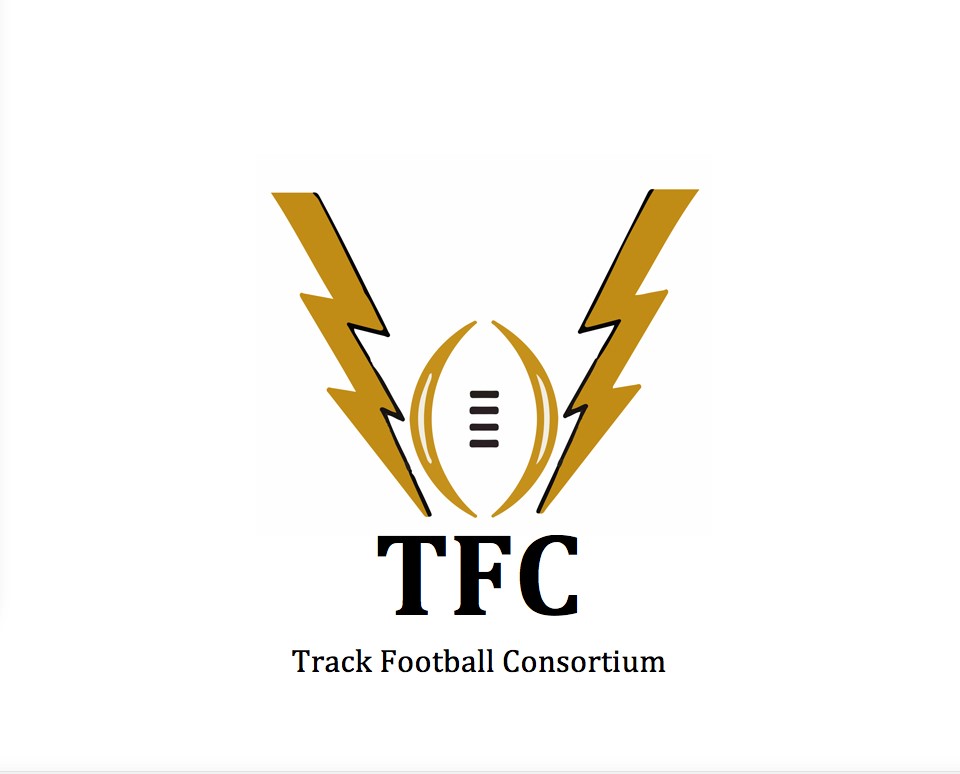
Why the Track Football Consortium Matters
(Written by Jonathan Mahoney, Guest Blogger)
The following post was born out of my correspondence with Coach Holler after the recent TFC-6 at Benedictine University.
Within the world of coaching education, the options for professional growth are endless. Online resources, coaching clinics, and direct interaction with experts are widely available. With all those options, one gathering stands apart, the Track-Football Consortium. This unique and applicable coaching clinic provides remarkable opportunities to support the development of a comprehensive program. Having attended two separate Consortiums, I have been fortunate to come away with both a basis for developing a speed training program as well as tweaks to various exercises and drills which will help our athletes continue to develop. What sets TFC apart is the focus of creating explosive, incredible athletes who are healthy and love to compete. This goes beyond the typical skill-based clinic and can make a big difference in a program. An athlete can have the greatest hitch-kick or Fosbury Flop in the world, but if they aren’t explosive and athletic, it doesn’t matter. No one is impressed by an athlete with perfect form but mediocre performance.
Beyond the technical detail and information overload from a TFC, what I love most is the consideration of the athlete as a whole person. This underpins the entire weekend. As a high school social worker, I am reminded multiple times a day of the various factors and issues our athletes regularly face. Often times, adolescents are walking around bearing a heavy burden, feeling that the deck is stacked against them. Utilizing the various approaches of Coach Holler, Coach Korfist, and other knowledgeable presenters, an athlete in our program can build confidence and improve on a regular basis. For instance, combining the “Feed the Cats” training approach with the “Record, Rank, and Publish” system offers an athlete an opportunity to set a PR … in practice! Every week! Then we can publish the performance on Twitter. Some of our athletes don’t have a lot of positives in their lives, so it’s really powerful to be able to take a positive experience of theirs and share it with the world. While experts may present about ideal training systems and how they elicited outstanding performances from top tier athletes (such as the Cougars of Houston or the Bears of Cal), the approaches shared at TFC fit well within our athletes’ lives.
Freaks can do amazing things. Regular high school kids, with focus and outstanding effort, can develop talent and become outstanding contributors. The two TFCs I’ve attended have clearly shown that. Our athletes are multidimensional beings that face various challenges each day. I end every practice with the statement, “Go home, do homework, stay eligible, get rest!” Nothing ever happens in a vacuum.
In addition to presenting a program that supports the athlete as a whole, the actual training ideas presented at TFC, such as “Feed the Cats,” seem nothing short of revolutionary, at least from my perspective. We all know the staple sprint workouts of the past like ladders of 100-200-300-400-300-200-100, 8×200 repeats, etc. We all know the shin issues, injuries, fatigue, and exhaustion that accompanied these workouts. We remember the dread of practice. Eventually, some athletes would “peak” when they tapered at the end of the season. Maybe they peaked because they were allowed to recover, rest, and finally get healthy. Our program has certainly reaped the benefits of this, “Feed the Cats,” approach. By sprinting as often as possible while staying as healthy and fresh as possible, we have been able to see positive results. Our program had a state qualifier in the sprints who also broke a school record from the 1970s. Her work ethic was phenomenal. She worked when asked and rested when asked. Her improvement was a case study for the overall improvement of our sprint group. It’s no coincidence that our ladies placed higher at the conference meet than we have in many, many years. We have experienced so much quantitative success with times, distances, and heights, but with that comes qualitative success as well. We have seen a culture shift since transitioning to this approach. PRs are powerful. Now we have ladies stopping us in the hallway talking about how excited they are for the coming season. I tell them every day, “Track is fun!” Apparently they agree.
The information shared at a TFC is incredible, mainly because it is so applicable. I only hope that I can hold onto and impart the knowledge gained to our athletes in a meaningful way. Form is nice, performance is better. The approaches shared are spreading throughout our state (Illinois) and beyond. It’s no coincidence that we are seeing more and more impressive times as these ideas continue to spread. Illinois has enjoyed a string of strong performances at state, however, perhaps the best is yet to come.
To sum up, I’ve learned how to produce explosive, healthy athletes who love to compete. I record and publish measurable improvements every week. I’ve found a practical way for athletes to develop confidence, experience success, and find balance. This is the type of information that you can gain from attending a TFC. Happy and healthy athletes who perform at a high level beat a perfect hitch kick and shin splints every day of the week.
Jonathan Mahoney, LCSW
Social Worker
Assistant Girls’ Track and Field Coach
Mundelein High School
